
China's foreign trade stabilized and returned to growth in the fourth quarter of 2016, but concerns are looming on rising trade protectionism that is likely to bring uncertainties to the new year's outlook.
Total foreign trade value was up 3.8 percent in the last three months of 2016, data from the General Administration of Customs (GAC) showed Friday.
For the whole year, total export and import value decreased 0.9 percent year on year to 24.33 trillion yuan, narrowing down from a 7 percent decline in 2015.
In the fourth quarter of 2016, China's exports were up 0.3 percent from a year ago, while imports climbed 8.7 percent, compared with a 0.3 percent decrease in exports and a 2.3-percent rise in imports in the third quarter, according to GAC spokesperson Huang Songping.
The country's exports in yuan-denominated terms dropped 2 percent to 13.84 trillion yuan (about 2 trillion U.S. dollars) year on year in 2016, while imports rose 0.6 percent from the 2015 level to 10.49 trillion yuan.
China's foreign trade surplus narrowed to 3.35 trillion yuan in 2016, down 9.1 percent from a year earlier, according to GAC data.
In December alone, exports were up 0.6 percent year on year, while imports jumped 10.8 percent.
EXTERNAL, DOMESTIC RECOVERY
Huang attributed the trade recovery to supportive policies, a rebound in external demand and a stabilizing domestic economy.
Despite the sluggish world economy and shrinking trade activity in the past year, Huang said that some economic indicators had slowly improved, citing the purchasing managers' indexes in developed economies, which suggested an expansion in the last quarter.
Boosted by growing domestic demand, crude oil imports in 2016 rose 13.6 percent to 381 million tonnes while iron ore imports climbed 7.5 percent to 1.024 billion tonnes, GAC reported.
Huand said that trade with countries along the "Belt and Road" had witnessed growth, and China's exports to Pakistan, Russia and India had risen 11 percent, 14.1 percent and 6.5 percent respectively year on year.
Meanwhile, China's exports to the European Union, the country's biggest trade partner, increased 1.2 percent. Exports to ASEAN, the third-largest partner, were down 2 percent.
Huang also highlighted the strong performance of Chinese private firms, which recorded 9.28 trillion yuan or 38.1 percent of the total foreign trade volume last year, compared with 37 percent in the previous year.
But foreign firms and state-owned enterprises (SOEs) were still facing difficulties in trade, he said, citing figures that total foreign trade value of foreign firms and SOEs had dropped 2.2 percent and 5.6 percent respectively in 2016.
RISING UNCERTAINTIES
Huang said that while it was "not easy" for China to see stabilizing signs in foreign trade in 2016, the new year would continue to bring new challenges and uncertainties.
In addition to the extended world economic downturn and China's restructuring efforts, which could hamper trade growth in some traditional sectors, the rise of trade protectionism was a growing restraint on China's exports, he said.
Chinese exporters faced a record number of 119 trade remedy probes initiated by 27 countries or regions in 2016, a 36.8-percent increase year on year, data from the commerce ministry showed.
In a latest move, the United States Thursday filed a complaint with the World Trade Organization against China for allegedly providing subsidies to aluminum producers.
The concern was echoed by Chinese investment bank CICC, which said in a research note that the bank expected better external demand for China in 2017, but the rise of trade protectionism would still brings uncertainty to global trade.
Huang voiced confidence that China's economy and its foreign trade had the resilience and potential to cope with fluctuations in the external market, but he called on the international community to take joint measures against trade protective acts.
"As a responsible power and the world's second largest economy, China will make efforts to fight uncertainties in the world economy and promote globalization while taking a firm stance against trade protectionism, so as to promote a sustainable development of the global economy," he said.
















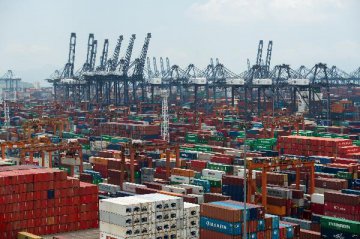
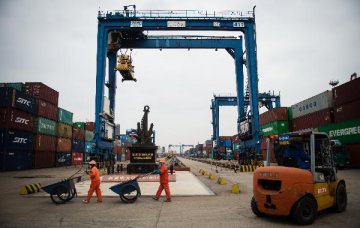
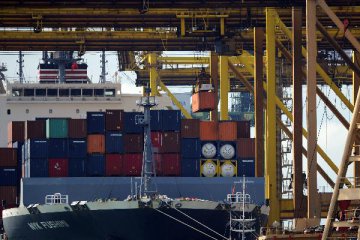
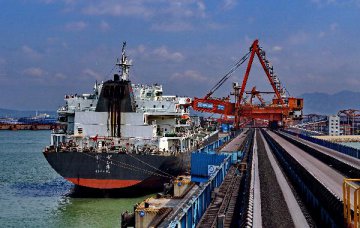
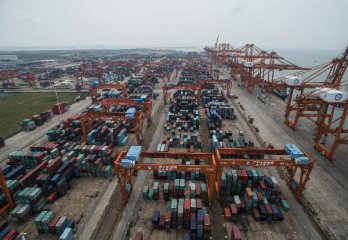



Latest comments